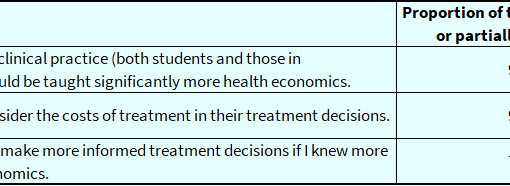
A boat is out on the bay in front of our summer home. Three young men are standing – fishing. It’s an early autumn morning, but these fishermen seem to be out of luck. The boat is drifting slowly towards the open sea, perhaps towards better fishing waters. The fishermen seem determined, resolutely continuing and heading towards the horizon. Or, at least, the skipper of the boat is very active.
Could this be about committing to a goal? Perhaps the fishermen are pursuing their common passion – or at least the skipper’s passion.
This is what research is likely to look to outsiders. Constant fishing, being in the cold, catching nothing and the whole thing looks just boring and laborious. Time passes, everyone’s adrift and even the pay is not that good. So, what is it about research that makes it worthwhile?
This makes one wonder when there are almost 500 Ph.D. students in biomedicine at the University of Turku alone. Some certainly have a great passion for science, but for others, it’s just another job. Some may have drifted into doctoral training without major passions or future plans. Nothing wrong about that. A Ph.D. degree merely shows that one has mastered the basics of scientific research and is able to apply these skills independently. After that, anything is possible!
Everyone working towards a Ph.D. will certainly receive a good scientific training. Many supervisors may purposefully train their students to only pursue an academic career, especially if the supervisor herself has no other experience. The only problem is that there are very few positions available for independent academic team leaders. This is the case both in Finland and around the world.
Fortunately, there are many other career options available to new research professionals. You just have to be aware of them. For example, there is a great need for making science accessible to the public. The academia itself offers diverse career paths on the administrative side, as does the rest of the public sector and various research institutes.
The life sciences industry in Turku has finally reached the long-awaited stage where researchers are scouted for work even before their graduation. This is a wonderful situation! Already 20 per cent of all industrial jobs in Southwest Finland are in pharmaceutical and diagnostic companies.
During postgraduate training, one is not easily exposed to non-academic career paths. Fortunately, new perspectives can be gained by networking and discussing with those working in other environments. My own experience is that people are very happy to help if you want to explore different career options. Who wouldn’t want to talk about yourself and your own experiences!
In the US, this even has its own term: informational interview. It’s not a job interview, but an employee seeking a new direction (or, in this case, a researcher) obtaining information about a new field or a new employer by interviewing someone already working in the field.
As I planned to move away from basic research as a postdoc at Stanford, I arranged to meet several colleagues who were working in the industry at the time. Everyone found time for lunch or early breakfast, or just time for an hour’s talk. These were most valuable discussions and I warmly recommend it. I have continued this tradition of low threshold mentoring in Finland as well. So please, feel free to contact me!
It is worth keeping both your mind and your eyes open, and actively seek to meet and talk with those who have chosen a different career. You will always broaden your horizons and may find that grass is indeed greener on the other side.
By the way, would it have been better if the young fishermen, out on the bay, had lowered their nets instead? After all, that counts as teamwork, or at least there would be interesting interactions between the fishermen!

Professor of Practise Timo Veromaa



